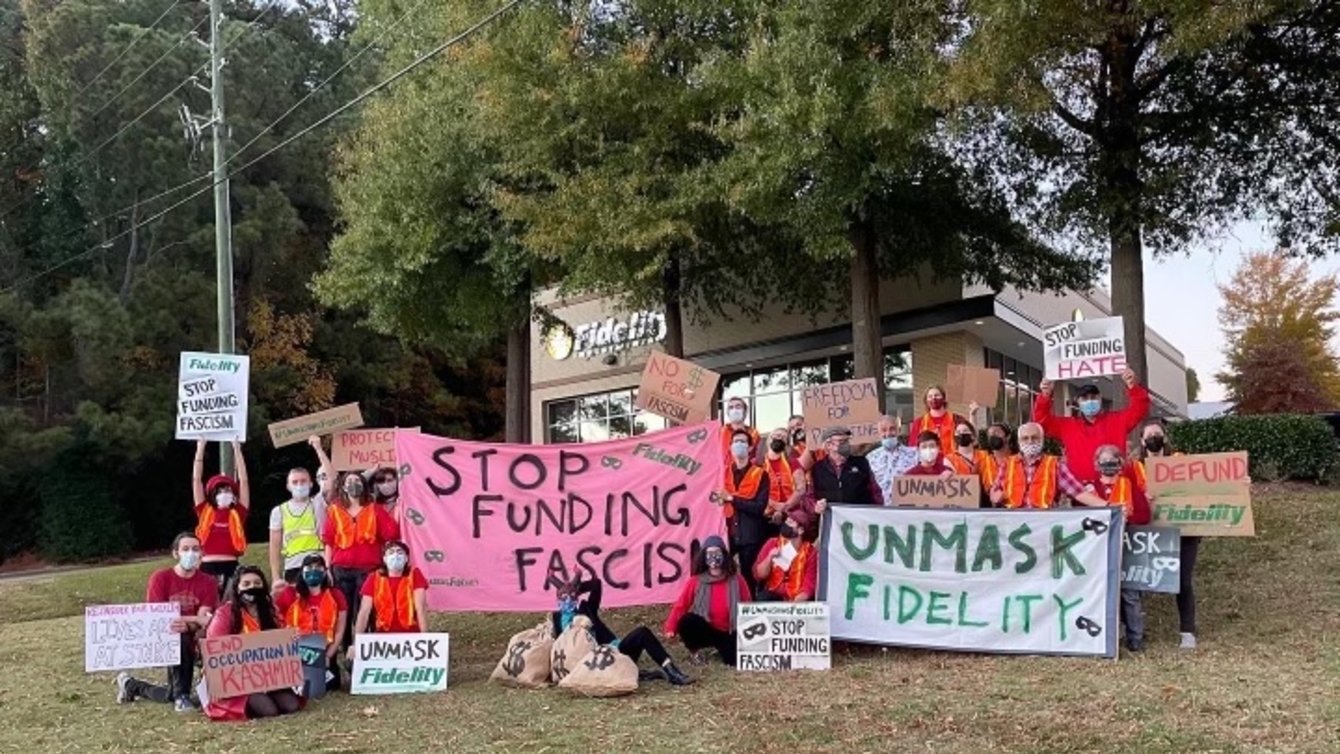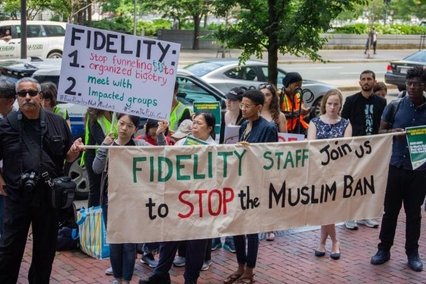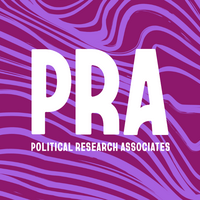The People Disclose

Image taken on November 2021 (Credit: Unmasking Fidelity Coalition)
Executive Summary
In the United States, the Internal Revenue Service confers tax-exempt status to charitable organizations, allowing them to receive tax-deductible donations. Most donors would assume that an organization that targets marginalized communities would be disqualified from holding charitable status, however this report highlights ten organizations known for developing and advocating for policies that further systemic The use of violence, intimidation, surveillance, and discrimination, particularly by the state and/or its civilian allies, to control populations or particular sections of a population. Learn more globally through a variety of tactics including propaganda, The act of favoring members of one community/social identity over another, impacting health, prosperity, and political participation. Learn more , and displacement. What is more shocking than the IRS permitting these organizations to have charitable status is that these groups receive funds from Fidelity Charitable, the country’s biggest philanthropic foundation.
Take the David Horowitz Freedom Center (DHFC) for example, whose revenue in 2019 exceeded $7.6 million and reports to the IRS that one of its largest program accomplishments is Jihad Watch, “a daily news site with news and opinion on the war with radical Islam.”1 DHFC proclaims “the Center exists as a School of Political Warfare to educate that counterforce and provide American patriots with the weapons required to achieve this defeat of the Left.”2 Institutions like DHFC contribute to systemic oppression of Muslim communities by influencing media, public opinion, and the government to create policies that limit—rather than advance—human rights. A form of religious bigotry, with strong racial components, that scapegoats & demonizes Muslims and those perceived to be Muslim. Learn more is particularly well-funded and fueled by philanthropy as laid out in the Council on American-Islamic Relations’ 2021 report Islamophobia in the Mainstream.3
Not only does DHFC receive charitable donations directly from individuals, it also receives Donor-Advised Fund (DAF) grants from charitable foundations. DAFs are the fastest growing vehicle for charitable giving.4 A DAF is a type of account that donors—individuals, families, or organizations—set up with a sponsor institution to give to nonprofit organizations. In doing so the donor receives immediate tax benefits and the sponsor institutions can meanwhile invest donations as they see fit. Importantly, once these accounts are set up, the donors do not legally have a direct say over how the funds they deposit are spent. Rather donors can “advise” the sponsor institution where to direct the funds, but the sponsor institution makes the final decision. In effect the sponsor institution acts as an intermediary, offering an additional layer of anonymity to individual donors.
“What is more shocking than the IRS permitting these organizations to have charitable status is that these groups receive funds from Fidelity Charitable, the country’s biggest philanthropic foundation.”
In 2019, a groundbreaking expose from Sludge, a nonprofit news outlet covering lobbying and money in politics, revealed that anonymous DAFs from the country’s four largest foundations contributed millions of dollars to organizations identified by the Southern Poverty Law Center as “hate groups.”5 At that time, we launched Unmasking Fidelity, a grassroots campaign specifically targeting Fidelity Charitable, as the largest DAFs provider. We formed a unique and powerful coalition of local and national organizations that includes targeted communities, researchers, Fidelity account holders and young people with access to wealth (and thereby philanthropy and financial institutions).
The Unmasking Fidelity campaign is committed to centering the role of systemic oppression. We recognize that violence against our communities is not limited to groups or individuals motivated by “hate.” There are broader cultural and structural reasons such violence continues.6 This approach recognizes the ways that the systems we live in (e.g., economic, legal, educational) and the institutions that shape our lives play an active role in furthering the violence caused by the organizations profiled in this report. We also offer an explicitly internationalist lens by expanding the list of organizations in this report, and in our campaign more broadly, to include US-based non-profits that further systemic oppression globally. We provide profiles of ten specific organizations who collectively have received millions of dollars in funding from Fidelity Charitable and chart a path forward for Fidelity Charitable to acknowledge and repair the harm it is causing.
Fidelity Charitable actively chooses to approve donations to organizations that, among other things, have advocated for forced sterilization of A term used for someone whose gender is not (exclusively) the one they were assigned at birth. Learn more people, support the recently-overturned Muslim Ban, fund illegal Israeli settlements, and facilitate the growth of Hindu nationalist ideology. None of these actions are “neutral” and there is nothing charitable about any of these activities. Additionally, Fidelity Charitable makes clear in its own policies that it approves “only those grants that are used exclusively in furtherance of charitable purposes.”7 It is past time for Fidelity Charitable to align its actions with its own stated policies and values.

Credit: The Unmasking Fidelity Coalition
The Unmasking Fidelity coalition, based in Boston with national support, is committed to challenging Fidelity Charitable’s role in funneling millions of dollars through Donor Advisor Funds to organizations that promote and further systemic oppression globally.
- Endnotes
- “David Horowitz Freedom Center Form 990,” U.S. Department of the Treasury, Internal Revenue Service, https://projects.propublica.org/nonprofits/organizations/954194642/2020….
- “David Horowitz Freedom Center,” David Horowitz Freedom Center, accessed November 24, 2021, https://www.davidhorowitzfreedomcenter.org.
- “Islamophobia in the Mainstream,” Council on American-Islamic Relations, January 2022, https://www.cair.com/wp-content/uploads/2022/01/islamophobiainthemainst….
- Howard Husock, “Appreciation in Donor-Advised Funds: An Analysis of Major Sponsors,” Philanthropy Roundtable, February 2021, https://www.philanthropyroundtable.org/home/resources/briefings/issue/a….
- Alex Kotch, “America’s Biggest Charities Are Funneling Millions to Hate Groups From Anonymous Donors,” Sludge, February 19, 2019, https://readsludge.com/2019/02/19/americas-biggest-charities-are-funnel….
- Kay Whitlock, “Reconsidering Hate: Policy and Politics at the Intersection,” Political Research Associates, 2012, https://politicalresearch.org/sites/default/files/2018-10/HateFrames.pdf.
- Fidelity Charitable Program Guidelines,” Fidelity Charitable, August 2021, https://www.fidelitycharitable.org/content/dam/fc-public/docs/programs/….
